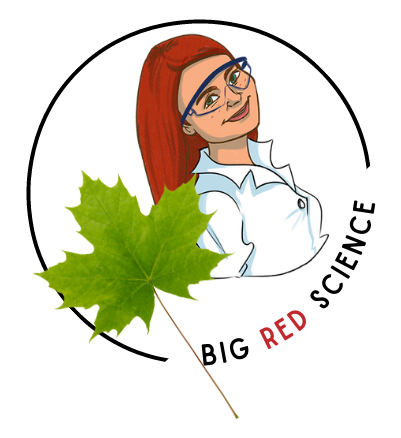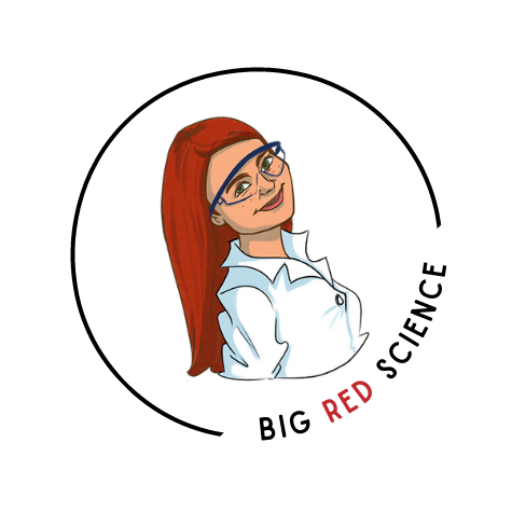
I recently shared my top tips of how to prepare for a lab BEFORE the day of the experiment to make sure it runs smoothly. Today, we’ll chat about what I do during the lab to make the most of the planned experiment!
1) Drive home the PURPOSE of the lab.
Too often we assume students understand why we’re doing a lab. In reality, they have soooo many other priorities taking up their brain space that to remember why they’re doing something that hasn’t happened yet often doesn’t make the cut.
Talk about it.
Have them repeat it to their partners.
Write it on the board.
Ask questions that make them refer back to it.
Annoy them with how much you bring it up!
2) Spend time going over the protocol with students.
This is where we left off in the last post, and I’ll add it here too. Even if you talked about in the previous class, spend 5-10 minutes reviewing what you’ll do AGAIN. Be sure to ask your students a guiding question (i.e. Once you have all of your equipment in front of you, what is the first thing you will do?) and have them explain it to their lab partners. Eavesdrop so that you can catch some potential pain points and/or so that you know which groups to hover around a bit more.
3) Review Safety Procedures and Waste Disposal.
This is another one from last post that also applies here. Lead a discussion about safety, but focus on what will happen if things are done wrong. Again, have them repeat the biggest safety/waste issues with their group and eavesdrop so that you can correct them.
4) Keep lab groups small.
If the space, class size, and equipment allow it I always go for lab partners – MAX 3. This means everyone will be participating…any more than that tends to mean one person is sitting back.
5) Big lab groups? Assign roles.
If you have to make bigger groups it can be helpful to assign roles to keep things running more smoothly.
Try these:
- Project director (leader, keeps group on task, talks to teacher)
- Materials manager (in charge of getting and putting away the materials and equipment)
- Data manager (in charge of collecting data)
- Safety director (enforces all safety instructions, reports any issues to teacher)
6) Display an FAQ slide
We talked about recognizing potential pitfalls in the last post, so now it’s time to throw up that FAQ slide that you can point to when students ask a common question.
7) Circulate and Ask Guiding Questions
Make it a priority for students to FEEL SMALL SUCCESSES during the lab. Visit each group and casually ask questions:
- Why do we do this step?
- What will it mean if we see this happen?
- What would you expect to see after we do this?
Let them help each other if they’re struggling, and adjust your questioning until they answer something correctly. Then give a bit of praise and move on to the next group 🙂
This might be surprising, but #7 is the most important for the long-term.
When students feel successful, they’ll get more out of the lab, their behaviour will improve, they’ll be more invested in the class, you’ll have more positive relationships and a more enjoyable classroom community…and all of these things make students more likely to learn! But everything else needs to be in place before you can get to the point where you can calmly circulate rather than put out fires (METAPHORICAL FIRES!).
What do you do with your students on lab day to make sure things run smoothly? Let me know at bigredscience@gmail.com!
Check back soon for more tips to follow after lab days to make the most out of your science experiments!
Scientifically Yours,
Mo
Interested in more science teaching tips from me? CLICK HERE!
Interested in other ideas? Check out:
What You Need To Do BEFORE Lab Day To Ensure Things Run Smoothly
3 Creative Science Bulletin Boards for High School
5 Easy Ongoing Science Activities to Engage Students All Year
Low-Pressure Icebreakers for the Science Classroom
7 Super Helpful Tips for New Science Teachers
Classroom Management Series #3: Tips for Reacting in the Moment
Classroom Management Series #2: Tips for Building Relationships
The #1 Things Teachers Wish They Learned in Teachers College
How to Guarantee that Your Students Will Remember What They Learn
The Proven Blueprint to Using Movies in the Science Classroom
Using YouTube for a Low-Prep Bellringer


